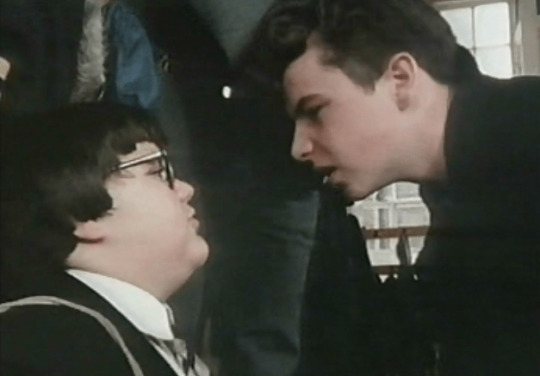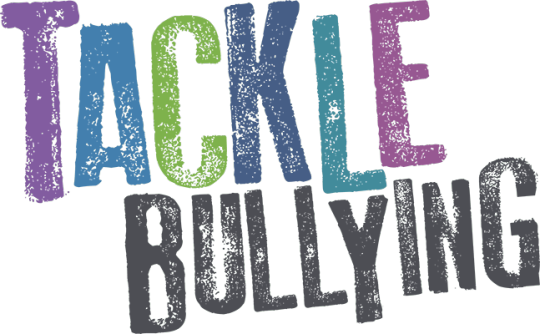#I can joke about it though because it’s got me in its grippers
Explore tagged Tumblr posts
Text
Never underestimate ur average stoner i just completely tore apart the charger for my pen today because it broke and i somehow fixed it all on my own.
I had to open up the casing and it turns out one of the teeeeeenie tiiiiiiny wires inside disconnected so i had to re solder that shit. This was my first time ever doing any soldering, and damn i’m surprised i even did it. It fucking works now. I’m a genius.
#I had to tape the casing back together cause it was fucked#But we’ll ignore that#Should i tag this with cringy shit to further my reach?#420stoner#Ew that makes it look braggy#stoner#tw weed#ouid#cartridge#vape carts#Addiction isn’t a joke though seriously#I can joke about it though because it’s got me in its grippers
6 notes
·
View notes
Text
Bullying
I make no apology for the length of this entry as the topic of bullying is a very emotive one. Where it occurs, it can be such a damaging and destructive set of actions, leaving the victims upset, hurt or, in a few cases, contemplating or going through with attempts at suicide. It is probably one of the biggest fears parents have for their child whilst at school and also something they feel unable to help with.

The scale of bullying: Once again, for those of us who were raised in the 70s and 80s, we are likely to have witnessed or experienced bullying on an industrial scale. These were the days before there was any awareness or acceptance of difference: the closest anyone got to neurodiversity back then would be if it was the name of a new wave pop group. Anyone with autism, ADHD or any other, fairly common, condition, was just seen as a ‘weirdo’, anyone who was slightly effeminate, or merely kind was ‘gay’ and anyone whose skin colour was darker than you would expect from a 2 week holiday in Skegness, was a N word or the Asian P word. These were just the verbal bullying, of course there was also the physical bullying, I think I was lucky to get through these years with both testicles intact, as they were treated like mosquitos – someone always looking to swat, flick, kick, stamp, punch or knee them, and the resulting excruciating pain provided the watching group with the highest form of hilarity. I guess it was probably different for girls. Fortunately, such sustained and ongoing bullying is very rare and, though parents should be vigilant, in the vast majority of cases, it is something that can be dealt with very easily and effectively by the school.
What is Bullying?: The key starting point for tackling bullying is knowing what bullying is. Most parents will be using their own experiences, possibly from school, but more likely form the media: whether that was watching Gripper Stebson with his 1950s teddy boy style, grabbing various Grange Hill characters by the throat as part of his dinner money pyramid scheme, through to Nelson Muntz giving Bart a wedgie on the Simpsons. Or maybe from stories or videos, some truly horrific, of young people being set upon and beaten up by groups of kids. None of these, however, help to clarify what bullying is.

There is no legal definition of bullying in the UK but, in a school context most would view it as ‘repeated behaviour which is intended to hurt someone either emotionally or physically, and is often aimed at certain people because of their race, religion, gender or sexual orientation or any other aspect such as appearance or disability.’
As well as knowing what it is, it is important to know what it isn’t, because there are many things that rather than having a negative impact upon our children, are actually valuable and important learning episodes (I can hear myself morphing into Oprah here):
- Falling out with each other – this happens and is an important part of their development into adulthood to deal with conflict with others. Unfortunately, far too many parents see this as bullying because their child might be upset as a result of it.
- Day to day rough and tumble – this particularly applies to boys as they grow up. There is some good science around the importance of ‘horseplay’ (Fry, D. P. (2005). Rough and tumble social play in humans / Pellis, S. M., & Pellis, V. C. (2012). Rough-and-tumble play: Training and using the social brain). Think of it like young animals that jump and climb and wrestle and fight. Having done thousands of break and lunch duties, I am very familiar with what is horse play and what is a bit more serious – the basic guide being are they all having fun, it is very easy to see if someone isn’t or if one individual is being targeted – that is where we step in.
- A one-off omission: for example not being invited to something outside of school.
- Not liking someone: we cannot make pupils like each other. This is another important learning point to help in growing up. I am sure we all have people in our own lives that we don’t like, but through our adolescent development, we have learned how to deal with that.
- Arguments: these happen all the time, as anyone who has been married will testify.
- A single act of telling a joke about someone. We have all been the butt of a joke at some point - usually funny for others, less so for us.
Of course if any of these things become repeated or several of them happen towards the same child, then yes this would then constitute bullying.

How to deal with bullying: this is what most parents want to know and is the point at which some parents go horribly wrong. So here is my step by step guide:
1. The most important thing is that the child tells someone. Staff in school are usually excellent at spotting things going on – I have lost count of the number of times I have been on duty and, amidst the mass of humanity that makes up lunch time, spotted a child looking a bit down, on their own or upset.
2. Watch out for changes in your child: mood swings, sudden aggression, withdrawal from family life (though take care as these are also the default setting for most teenagers.)
3. If your child can’t talk about it, get them to write it down.
4. If it involves social media, which increasingly it does, switch it off – delete the apps and don’t engage.
5. NOW CONTACT THE SCHOOL. I have put this in caps because this is the most important thing. Having discovered you think your child is being bullied, you will be feeling angry, shocked, protective, aggressive and maybe even feel you have failed your child. This heady concoction of feelings is not a good place from which to start to address the issue.
6. Work with the school: the vast majority of schools deal with these things on an almost daily basis. They know the other children, they see the interactions, they know the parents of the other child or children. They care deeply about your child and the other children and they will do what they feel is best.
7. If things don’t get any better, then escalate the matter within the school – schools are hierarchical and above a form tutor is a head of year, above them a member of the Senior Leadership Team and above them the headteacher.
How not to deal with bullying: the steps above should lead to the matter being resolved and your child returning to their usual happy, or at least apathetic, experience of school. However, I have had plenty of first-hand experience of parents who decide to handle the matter differently – none of these led to a better outcome than following my advice, and some led to far more serious outcomes for them.
- Don’t start the discussion off by being abusive or threatening the school for ‘failing your child’. Venting your anger on a poor receptionist won’t make the wheels move faster.
- Don’t start at the top. I have had many examples of parents contacting me directly, as headteacher, to deal with a falling out between two pupils. Though I have decades of pastoral experience, there are far more appropriate people to look into the matter. It isn’t that I don’t care, but the school and education system wouldn’t really be getting its money’s worth out of me if I spend 6 hours a day in ‘circle time’ with Year 7 girls who have fallen out.
- Don’t go above the top. On a number of occasions I have had parents decide that, rather than inform the school, they think the matter would be resolved quicker by going above the school to the Local Authority, Ofsted, The Diocese, local MP, Parish Priest, the press, the Pope or anyone else they could think of. Needless to say, none of these people are really in a good position to unravel the reasoning behind why Sally didn’t invite your Bethany to Cineworld last week.
- Don’t encourage your child to take matters into their own hands. “I’m sorry Sir but I have told him, if anyone says anything to you, you just punch them” or “You can’t tell me that you wouldn’t tell your son to hit them if they say anything.” Well-meaning as this advice from some parents is, it isn’t really great preparation for the world of work. For that day when little Billy grows up, gets his job in middle management and has a falling out with Steve from accounts and decides a good right hook might progress things. So unless you have grand plans for your child to move into the gangland underworld, it really isn’t good advice.
- Don’t take matters into your own hands with the parents. Often when parents raise a concern about another child bullying their own child, they will want to meet with the other parents. Nearly all schools will avoid doing this, not because we are being obstructive, but because a) the parents (usually) aren’t the people who have fallen out and b) both sets of parents will have only heard their own child’s version of events and will be overly protective. It doesn’t work. Likewise contacting the other parents by text, social media or be going round to the house – all of these are like trying to put a fire out armed with aerosols and petrol. I have witnessed parents going for each other outside the school gate, or picked up the pieces afterwards when one or more parents have been charged with assault.
- Don’t take matters into your own hands with the child. No matter what you have been told about the other child, they are still that, a child. I have known many occasions where a parent has approached a child directly to ‘warn them off’ like some sort of mafia enforcer. Now I don’t know how they have thought it would play out in real life, but the reality is usually that the child is with some friends, feels like they can’t lose face and so rather than say “Yes of course Mrs T, it was wring of me to behave like that towards your little Mickey, it won’t happen again, take care.” It ends up more “Who are you talking to? Get away you Pedo. I didn’t do anything. F*&k Off, I am going to get my dad on to you.” To be fair this approach does often end the initial bullying and is replaced by family warfare, police action and lawyer involvement.
Don’t arrange a ‘settler’. This is where both sets of parents arrange for the children to meet up and have a settler (a fight to resolve things). For many of you reading this, the very thought would be horrific, but for some of the communities I have worked in, this is the ‘honourable’ way to do things. I have known parents set up times / places for the fight, have rules around not jumping in and even drive their children to the event, like an evening at a Justin Bieber concert. This is not just for boys, I have known it happen with girls too and heard a child describe how her dad had watched her get knocked all over the place then afterwards suggest that the matter was no closed.
0 notes